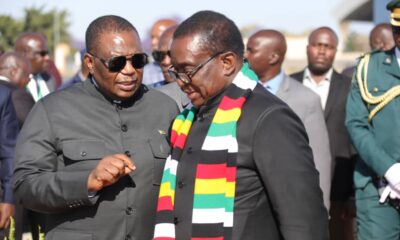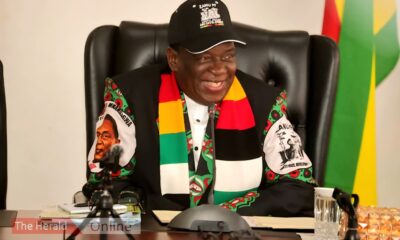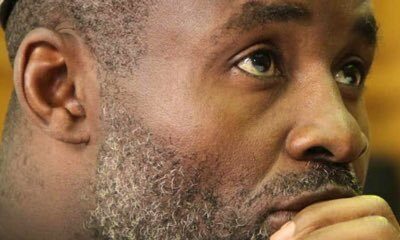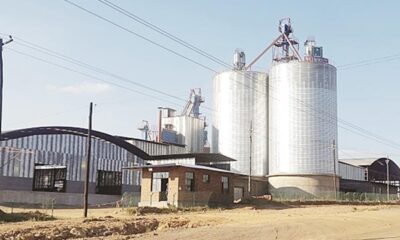A GROUPING of civil society organisations, the Zimbabwe Human Rights NGO Forum (the Forum), has taken the country’s human rights fight to the African Union, predicting a bloody election due to the government’s hardline stance against critics, which is likely to perpetuate the violation of civil liberties.
NATHAN GUMA
Zimbabwe is heading towards general elections in August amid concerns that the violence witnessed in previous polls may occur once again.
For instance, in the aftermath of the previous general election, six unarmed citizens were killed by security forces on 1 August 2018 after opposition supporters protested the Zimbabwe Electoral Commission’s delay in releasing the poll results.
Victims have not been compensated since then. This week, The Forum in its submission to the 75th African Commission on Human and People’s Rights (ACHPR), said violence has been evident in the period before the election, which is likely to have an effect on the process itself.
“On political violence, Zimbabwe is due to hold its harmonised elections in the next three to four months. The President has called for a violence-free election. Notwithstanding, the country has already witnessed politically linked violence.
“The escalation in incidents of politically-motivated human rights violations in Mbare, Matobo and Insiza districts after the last intersession points to a deepening political crisis in the country as the nation trudges closer to the 2023 general elections.
“In Mbare . . . clashes over the control of vending stalls at Mupedzanhamo resulted in one fatality, arson, and malicious damage to property. Despite both Zanu PF and Citizens’ Coalition for Change (CCC) youths being implicated in the violence, police only detained CCC youths (Brian Tongowasha, Marshall Marova, Nellish Watosvorwa, Bramwell Marime, Tendai Musauki, Robert Madira and Tinotenda Gwechekweche) who were allegedly apprehended by Zanu PF members,” read the submission.
The Forum said in Matobo Ward 2, CCC members were assaulted while mobilising support ahead of the 26 March by-elections last year.
The party won the by-elections.
“Victims of violence received a report that several vehicles had blocked the road at a bridge leading to the Mlotshwa family and people were being harassed. Member of Parliament (MP) from Nkulumane Constituency (Kucaca Phulu) in Bulawayo was present.
“They (the victims) were met with violence and assaulted, including the MP. A gun was pointed at the MP before he was assaulted. The victims, including the MP, claimed over 15 vehicles were blocking the road, led by one vehicle branded Zanu PF Mashonaland Central.
“The group proceeded to one of the victims’ homesteads where they destroyed the windows of houses. About nine elderly women who were mobilising support for CCC were stripped of their blouses and left with bras, or bare-breasted,” read the submission.
The Forum condemned the shrinking of civic space since Mnangagwa rose to power in 2017.
“Shrinking civic and democratic space since the last intersession, the Private Voluntary Organisations (Amendment) Bill sailed through the House of Senate. A positive development was that as civil society organisations (CSOs), we requested an audience with the President, who kindly acceded to our request.
“A high-powered CSOs delegation met the President and senior government officials where the Bill was discussed. The President undertook to consider the CSOs’ views after consultation with the Attorney-General of Zimbabwe. We remain concerned about over-regulation and the unconstitutional manner in which the consultations took place,” read the report.
The Bill awaits presidential assent. The Forum has also condemned selective application of the law by the government. In an interview with The NewsHawks in February this year, CCC president Nelson Chamisa said over 70 of his party’s rallies had been stopped by police since the party has in 2022.
“As the country prepares for elections, perceived voices of dissent are being subjected to selective application of the law with the space being restricted for other political players and the space being open for others.
“On 14 January 2023, Zimbabwe saw the arrest of 26 opposition political party activists. The 26 were arrested on allegations of attending an unsanctioned meeting at the house of a member of Parliament. The meeting was violently disrupted by the Zimbabwe Republic Police who also threw teargas in the residential home,” read the report.
“During the last session, we highlighted the plight of a member of Parliament, lawyer and opposition leader, Honourable Job Sikhala, who has been in pre-trial detention for over 300 days when his conviction and sentencing were passed yesterday. The prolonged duration of his pre-trial detention before sentencing is a cause for concern.”
More people have been convicted, for instance, novelist and filmmaker Tsitsi Dangarembga who was found guilty of “inciting public violence” during a peaceful 2020 anti-government. She was acquitted this week.
“In 2023, a lawyer Kudzai Kadzere was assaulted by the police and sustained a fracture by the members of the Zimbabwe Republic Police as he was responding to a group of 26 opposition activists who had been arrested.
“And more recently, on 27 April 2023, opposition Transform Zimbabwe leader Jacob Ngarivhume was convicted of public violence incitement charges stemming from a July 2020 tweet in which the opposition politician called for a national shutdown in protest over corruption and poor leadership and was sentenced to an effective 3-year custodial sentence,” read the report.
The Forum urged the government to employ regional best practice regarding pre-trial detention and timely detention and to abide by principles and guidelines on the right to a fair trial and legal assistance in Africa proclaimed by the African Commission on Human and People’s Rights.
“We call upon government to facilitate the existence of a conducive environment for female HRDs [human rights defenders] to participate in the political space and implement the 50/50 clause on political representation in decision-making positions; and provide specific protections to human rights defenders that, inter alia, include the right to conduct human rights work individually and in association with others. “We implore government to support the complimentary role of civil society organisations in the communities and not shrink the democratic operating space through waging lawfare.”





















